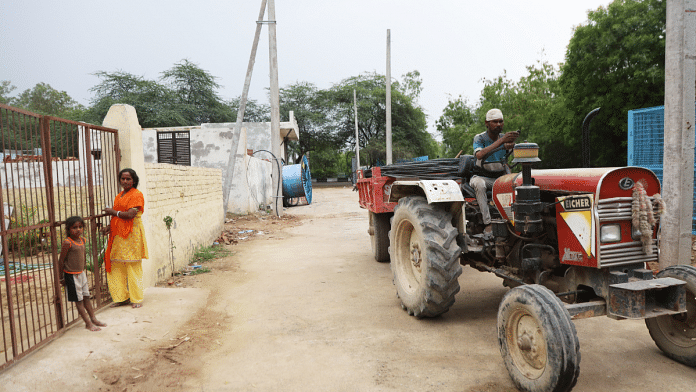New Delhi: Tucked away at the periphery of Delhi borders, urban villages earmarked for the Delhi Development Authority’s (DDA) land pooling policy are seeing a section of owners going ahead with constructions in contravention of rules.
This was acknowledged by none other than DDA officials, who confirmed that such constructions were “unauthorised”, and that “any development” in such areas were to be executed by meeting the eligibility criterias mentioned in the Land Pooling Policy that was notified in 2013.
Under the policy, land owners or their groups pool land parcels for development as per prescribed norms and guidelines. Overall, 105 urban villages — which have been divided in six zones spread over 129 sectors — were identified for land pooling in Delhi.
The primary reason for such illegal constructions is that the land pooling policy remains a non-starter on the ground due to two eligibility criteria that landowners have struggled to meet — a minimum of 70 per cent landowner participation and 70 per cent contiguous land that is free of encroachments.
ThePrint Wednesday visited Gadi Khusro and Kadipur, located at a distance of 20 km from central Delhi Wednesday, and found that unauthorised constructions were continuing unabated in these two urban villages located at Sectors 12-B and 12-C in Zone P-II.

Bhupender Bazad, who heads the Master Plan Committee of Delhi Dehat Vikas Manch (an association of landowners based in land-pooling villages), pointed towards housing colonies that are coming up in the north Delhi-based villages.
While a few houses have already been constructed, some are partially done with interior roads in place — resembling that of a housing colony. The offices of property dealers that were left unattended were among those structures which have sprouted in the area.
“The DDA is aware that unauthorised constructions are taking place in the land pooling villages, but the action from their end has been minimal and the illegal constructions are very much in place,” Bazad told ThePrint.
Another landowning villager, Narendra Kundu, blamed the roadblocks in the DDA policy for the mushrooming of these illegal constructions.
“Multiple announcements have been made regarding amendments that will solve the policy roadblocks, but they are yet to be implemented. This only adds to the delay, which will lead to more landowners losing interest to participate in land pooling,” lamented Kundu, who owns 10 acres of land in the nearby village of Akbarpur Majra.
Then there are also residents like Rajbir Rana, whose family jointly owns 27 acre of land in Sector 12-C, who feel unauthorised constructions pose a threat to prospects of the sector seeing planned development.
“Unlike these two sectors, the scale of unauthorised construction is relatively lesser in my village However, we fear that once other sectors start nearing saturation due to the encroachments, then our village will also face a similar fate,” said Raghunandan, who owns seven acres of land in Sector 1, at Tigipur village.
Policy roadblocks
Notified in 2013 and tweaked in 2018, the Land Pooling Policy was aimed at solving Delhi’s growing housing needs with an aim to provide 17 lakh dwelling units for a population of about 80 lakh.
According to the policy, 60 per cent of the pooled land is earmarked for the landowners to develop residential projects, while the remaining will be surrendered to the DDA for developing roads, parks and other infrastructural developments.
While the DDA’s earlier role included that of a developer, the 2018 notification saw its role change to that of a facilitator. The onus of achieving the eligibility criteria for land pooling remains on the landowners. Since 2019, 7,452 hectare has been pooled, of the total 19,074 hectare of land, through landowners expressing their willingness to participate in the scheme.

“The policy being a non-starter for a prolonged period has resulted in land owners growing impatient. This has further resulted in them selling or dealing with their land for unauthorised development. In the current scenario, unauthorised constructions are mushrooming in various land pooling areas,” said a senior DDA official who wished to not be named.
Also Read: Natural surveillance, gender-friendly streets – how DDA plans to make Delhi safer for women



